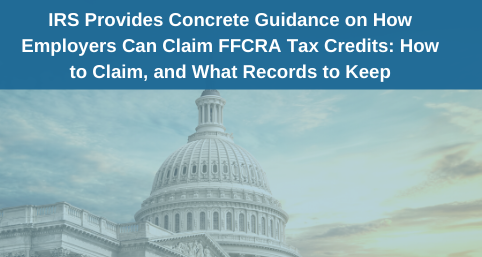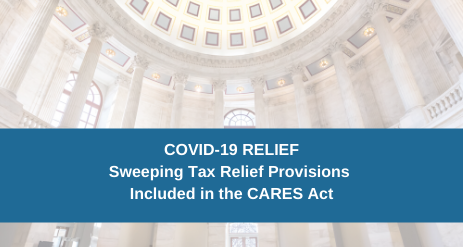
Qualified Tax Lawyers With Offices in Maryland, Virginia and Washington DC Serving Clients Nationwide
Federal and state tax rules are dauntingly complex and ever-changing. The tax attorneys at Shulman Rogers help our clients understand and comply with these rules without incurring undue costs.
When a business initiates or enters into a significant business transaction, it is crucial to understand and comply with the related tax consequences. Our tax attorneys work closely with attorneys from all practice areas within the firm to help our clients recognize and understand the taxes that may arise from the transactions. We help clients explore alternative structures that may reduce current or long-term tax burdens. We carefully analyze the form of business transactions to evaluate the risk of IRS challenge based on substance over form and step transaction, anti-abuse, and other principles and importantly, we help our clients save money by avoiding unnecessary tax costs. Our tax attorneys are committed to ensuring that clients understand in advance the tax consequences of proposed transactions and consider alternatives structures that might produce different tax results.
Optimally, we are helping our clients to plan in advance in order to minimize tax exposure and reduce tax liabilities, but we are also frequently retained to represent clients after their tax reporting position has been challenged by the Internal Revenue Service and state tax authorities. In tax controversies, our tax attorneys are able to apply their years of experience to vigorously present the most compelling defenses of the client’s tax reporting positions and to negotiate with audit, appeals and collection officers. We provide assistance in a cost effective manner, recognizing that the legal costs incurred in defending the client must be weighed against the benefits derived from reducing the burden of taxes, penalties and interest proposed by the tax authorities.
The types of matters for which our attorneys provide tax assistance to both companies and individuals cover a wide range of matters, including the following:
Business Structures
- Assist clients in selecting whether a new business entity should be formed as corporation (C or S), limited liability company, partnership or business trust.
- Plan for reducing tax impact on conversion of corporation from C to S status.
- Plan transfers of property into, or distributions of property from, entities in a manner that reduces current taxation.
- Structure tax allocation and distribution provisions in partnership and limited liability company agreements to ensure compliance with IRS regulations.
- Minimization of tax recognition on issuance of stock, partnership interests and limited liability company interests to company employees, directors and other service providers.
- Setting up tax-compliant option, stock appreciation and deferred compensation plans.
- Assisting clients in the formation and operation of Employee Stock Ownership Plans.
Business Transactions
- Structuring sales, mergers, consolidations and other transactions to reduce tax exposure.
- Analyzing tax consequences of spin-offs, split-ups and other divisions of business entities.
- Assessing tax impact of ownership shifts or equity changes within entities.
- Analyzing U.S. withholding and tax filing requirements for foreign companies engaging in U.S. business.
- Advising U.S. companies of use of foreign affiliates to reduce U.S. taxation.
- Facilitating like-kind exchanges of real property to defer taxation of gain.
- Minimizing cancellation of debt income and phantom gain on property foreclosures and workouts.
- Ensuring compliance with FIRPTA and partnership withholding tax on property dispositions.
Real Estate Tax Planning
- Choice of entity for ownership and operation of real estate.
- Tax consequences on transfers of real property to, or distributions or property from, partnerships, limited liability companies corporations and other entities.
- Structuring and negotiating joint ventures and drafting all documentation related thereto.
- Facilitating 1031 like-kind exchanges of real property to defer taxation of gain.
- Structuring tax allocation and distribution provisions in partnership and limited liability company agreements to ensure compliance with IRS regulations.
- Minimization of tax recognition on the issuance of partnership and limited liability company interests to real estate managers and employees.
- Assessing tax impact of ownership shifts or changes within entities.
- Structuring sales, mergers and other transactions to reduce tax exposure.
- Reducing the impact of passive loss and at-risk limitations on the ability of investors to utilize tax losses.
- Assisting real estate developers in understanding the consequences of “dealer” status and alternatives.
- Structuring lease/purchase arrangements to ensure appropriate tax treatment.
- Minimizing cancellation of debt income and phantom gain on property foreclosures and workouts.
- Negotiation of payment plans and offers in compromise for delinquent tax payments.
- Represent investors, syndicators, private equity funds, for-profit and nonprofit developers, construction and permanent lenders (both conventional and tax-exempt), and various state housing agencies charged with the establishment and operation of, and compliance with, the LIHTC program in their respective states.
- Represent both for-profit and nonprofit developers and investors in New Markets Tax Credit (NMTC) transaction; providing tax opinions as requested.
- Represent developers, nonprofit organizations, syndicators and investors in connection with the development, rehabilitation and equity syndication of historic tax credit projects.
Tax-Exempt Organizations
- Preparing requests for exemption determination letters for charitable organizations, trade associations, and other tax-exempt organizations.
- Reviewing activities to determine liability for unrelated business income tax.
- Structuring partnerships or joint ventures with non-exempt businesses to ensure that tax-exempt status is not jeopardized.
IRS Compliance & Controversies
- Assisting clients and their accountants on audits of complex tax issues.
- Representing clients at IRS appeals hearings.
- Submitting requests for private letter rulings.
- Submitting and negotiating offers in compromise.
- Negotiating payment plans for delinquent tax payments.
Practice Chair
- Entrepreneur desires to form a new venture with funding by friends and family to engage in development and licensing of intellectual property. The client initially believed that formation of C corporation was necessary because of the possibility of obtaining venture funding in the second round of financing and belief that C corporation would be required by the venture. Tax attorneys worked with the client to determine that limited liability company should be used instead in order to provide flow-through of tax losses and priority distribution rights to initial investors. Key employees were granted profits interests and equity appreciation rights, without current tax impact, to enable them to participate in future growth in company value. The operating agreement of entity included carefully crafted provisions to enable the manager to convert entity to the corporation if needed to facilitate the subsequent round of funding.
- Real estate developer desires to form an entity to undertake construction and leasing of a commercial office building on the tract of real property. Tax attorneys worked with firm’s real estate attorneys to set up limited liability company between the developer and the real estate owner, with real property owner receiving distribution priorities designed to ensure that the contribution of property and distributions were not recharacterized as a disguised sale under partnership tax rules. Debt from institutional lender was structured to allow debt to be allocated to the parties in a manner to give them sufficient basis to be able to utilize allocated tax losses.
- The tax-exempt private foundation received the gift of a large portion of the stock of a closely-held corporation. Federal tax-laws impose substantial penalty tax if stock in excess of a 2% threshold is not disposed of within 5 years. Due to the absence of a market for the sale of stock, the foundation was unable to dispose of stock within that time frame. Tax attorneys prepared and submitted to IRS request for a private letter ruling waiving the penalty tax. Working with IRS officials, we were able to obtain for the client a ruling waiving the penalty and permitting a reasonable amount of extra time in which to satisfy the disposition requirements.























